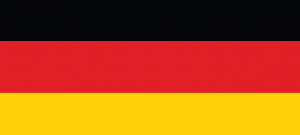Language/German/Grammar/Objects
Hello everybody,
In today's lesson you will learn how to use ¨CASES AND OBJECTS¨ in German.
Feel free to edit this page if needed !
Happy learning ! :)
When you've comprehended the knowledge in this module, you may be keen on exploring these related areas: Gender, Be Polite, Descriptive Adjectives & Cases: Nominative and Accusative.
Some words for Cases and Objects in German[edit | edit source]
| ENGLISH | PRONUNCIATION
ENGLISH |
GERMAN | PRONUNCIATION
BRAZILIAN PORTUGUESE |
BRAZILIAN
PORTUGUESE |
|---|---|---|---|---|
| Nominative | Nominativo | |||
| The desk | dehr teesh | Der Tisch | dér tiich | A mesa |
| The bag | dee tah sheh | Die Tasche | dii taa che | A mala |
| The window | dahs fehns tuhr | Das Fenster | dás féns târ | A Janela |
| Accusative | Acusativo | |||
| I see
the desk |
ih kh zeh eh
dehn teesh |
Ich sehe
den Tisch |
iCH zee e
den tiich |
Eu vejo
a mesa |
| I see
the bag |
ih kh zeh eh
dee tah sheh |
Ich sehe
die Tasche |
iCH zee e
dii taa che |
Eu vejo
a mala |
| I see
the window |
ih kh zeh eh
dahs fehns tuhr |
Ich sehe
das Fenster |
iCH zee e
dás féns târ |
Eu vejo
a janela |
| Dative | Dativo | |||
| I help
the father |
ih kh hehl feh
dehm fah tuhr |
Ich helfe
dem Vater |
iCH HeL fe
dem fá târ |
Eu ajudo
o pai |
| I help
the mother |
ih kh hehl feh
dehr mou tuhr |
Ich helfe
der Mutter |
iCH HeL fe
dér mú târ |
Eu ajudo
a mãe |
| I help
the child |
ih kh hehl feh
dehm kihnt |
Ich helfe
dem Kind |
iCH HeL fe
dem kínt |
Eu ajudo
a criança |
Hello everyone!
Today I want to share a really important part of German language with you.
As you know, "the articles" is an important issue in learning German. Every noun you can imagine in German has an article based on its group. We have 3 groups of words in German: male (Maskulin), female (Feminin) and neutral (Neutral), and they have 3 main articles like this:
male:der, female:die, neutral:das.
- for example: der Tisch (the desk), die Tasche (the bag), das Fenster (the window).
Based on this issue, you have changed articles in Objective forms. We have two objective forms in German: Akkusativ (accusative) und (and) Dativ (dative)-
now look how they change in the accusative form:
- Hier ist der Tisch. (the desk is here.)----->>> Ich sehe den Tisch. (I see the desk.)
- Hier ist die Tasche. (the bag is here.)------>>> Ich sehe die Tasche.(I see the bag.)
- Hier ist das Fenster (the window is here.)---->>> Ich sehe das Fenster. (I see the window.)
You can see that only and only male form chages from "der" to "den", the other ones stay like their main form in the accusative form.
But in dative, or Dativ, form you have all of them changed. look at the example:
- Der Vater ist da (The father is there.)--->>>Ich helfe dem Vater. (I help the father.)
- Die Mutter ist da (The mother is there.)--->> Ich helfe der Mutter. (I help the mother.)
- Das Kind ist da. (The child is there.)------->> Ich helfe dem Kind. (I help the child.)
Now you see that all articles change in dative form; Der becomes dem, die becomes der and das becomes dem. And for articles before the names, you have these important rules.
Good luck and enjoy learning German.
MJ Mahdizadeh
Other Lessons[edit | edit source]
- Questions
- Nouns
- Present Tense
- Past Tense Part 1 Perfect Tense
- Definite Articles in German
- Future Tense
- Pronouns in German
- Cases
- Past Participle in German
- Past Tense


